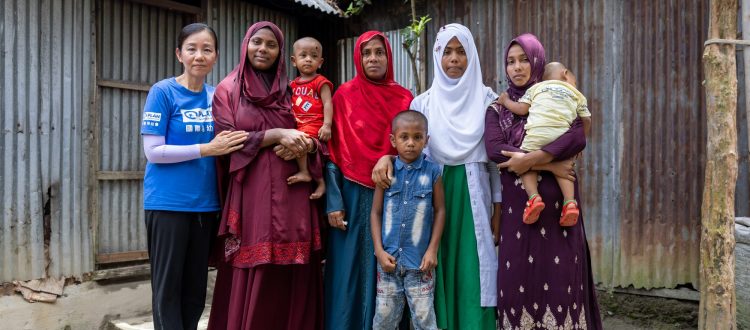A Child Marriage Victim Married Off Her Daughters One By One. How Can We Break The Intergenerational Cycle Of Child Marriage?
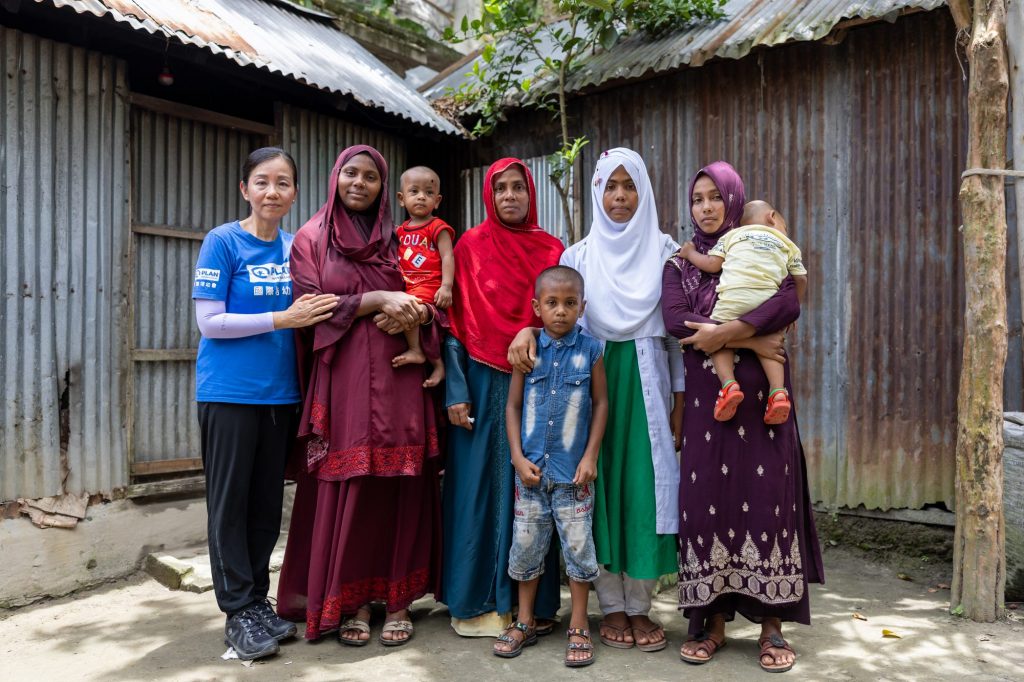 The greatest hope of every parent is to see their daughter find a worthy partner who can be entrusted with for life. However, for 33-year-old Nazma from Bangladesh, this simple wish has become her lifelong regret. As a victim of child marriage, she felt sad that she was unable to prevent the tragedy of child marriage from being repeated in the next generation. Due to poverty, child marriage against girls’ will continues to be passed down from generation to generation in poor families like a curse, destroying the happiness of countless girls throughout their lives.
The greatest hope of every parent is to see their daughter find a worthy partner who can be entrusted with for life. However, for 33-year-old Nazma from Bangladesh, this simple wish has become her lifelong regret. As a victim of child marriage, she felt sad that she was unable to prevent the tragedy of child marriage from being repeated in the next generation. Due to poverty, child marriage against girls’ will continues to be passed down from generation to generation in poor families like a curse, destroying the happiness of countless girls throughout their lives.
Due To Poverty, More Than Half of The Girls Are Married Underage
In August last year, I visited Bangladesh again, and through in-depth interviews with a family that suffered from intergenerational child marriages, I learned more about how parents were forced to marry off their daughters under financial difficulties and feudal culture.
According to the United Nations, more than 41.6 million women in Bangladesh were married under 18 years old, accounting for 51% of all married women; 22.3 million women were less than 15 years old when they got married; and nearly 40% of girls were pregnant before the age of 18. Girls at her young age, who should be receiving education and equipping themselves with vocational skills, are forced to drop out of school to take care of their families and lose their ability to be financially independent. From then on, they are trapped in a vicious cycle of poverty, which leads to the continuous occurrence of intergenerational child marriages.
Married Hastily Ruined Girls’ Health; Pregnancy at the Age of 14 Led to Endless Sufferings
Three generations living under one roof is a symbol of a happy family. However, in a village in Kurigram, Bangladesh, seeing a young woman having children and grandchildren represents a life she has no control of. 33-year-old Nazima is not only the mother of three daughters but also the grandmother of three grandchildren. Due to poverty, she was forced to get married at the age of 14 under the arrangement of her parents, and she became pregnant with her first child in ignorance. During her pregnancy, she endured severe headaches, anemia, physical weakness, and uterine complications. After giving birth, she struggled to take care of her newborn baby. Without proper care, she was too weak to resume work and could only stay at home to take care of the family.
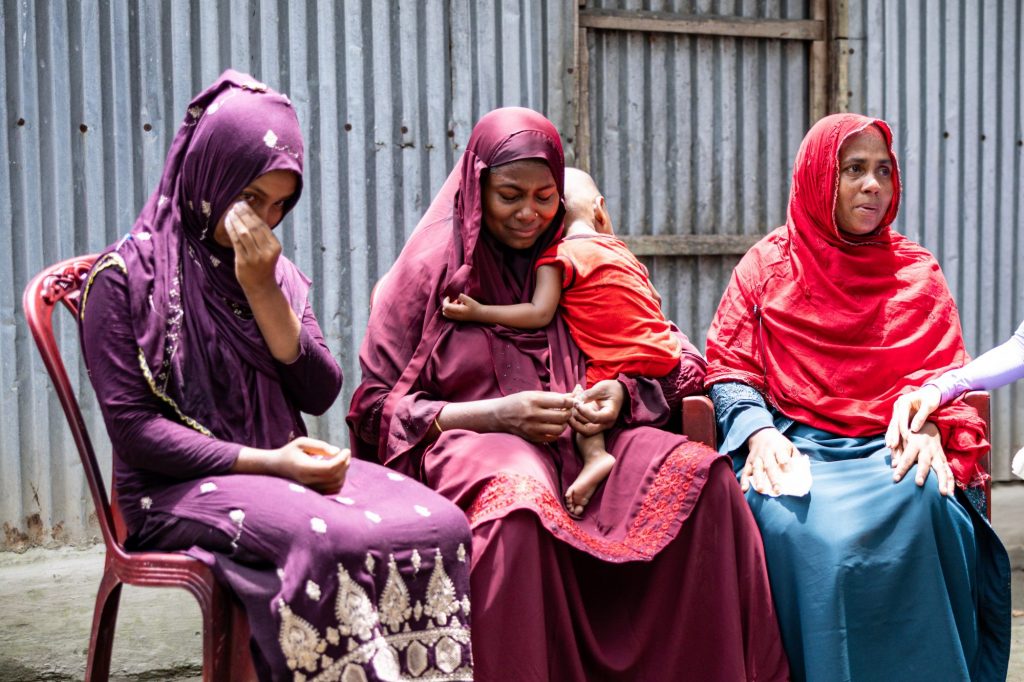
Recalling the miserable marriage life, Nazima (first from right), her eldest daughter Kakulm (second from left), and her second daughter Taslima (first from left) all burst into tears. Even though they were forced to become child brides, they all understood their parents’ helplessness and never blamed them. Their deep affection was touching.
Daughters Followed in The Footsteps Of Child Marriage Because of Extreme Poverty
Realising the consequences of child marriage, Nazima’s biggest wish is to support her daughters in studying and let them pursue their dreams. Unfortunately, her husband is just a worker with a monthly salary of only 7,000 Taka (approximately HK$495). The tuition and living expenses alone are as high as 13,000 Taka (approximately HK$919). The meagre income is not enough to support a family of five. In desperation to reduce the financial burden, Nazima could only marry her two daughters off at the ages of 13 and 14, watching them being trapped in a family with endless household chores again.
Seeing them recall their struggle in tears, I deeply felt the pain of Nazima as a mother who could not prevent her daughters from becoming child brides. As a parent, who doesn’t want to see our daughters grow up healthily, graduate from school, find a job, and have a happy married life?
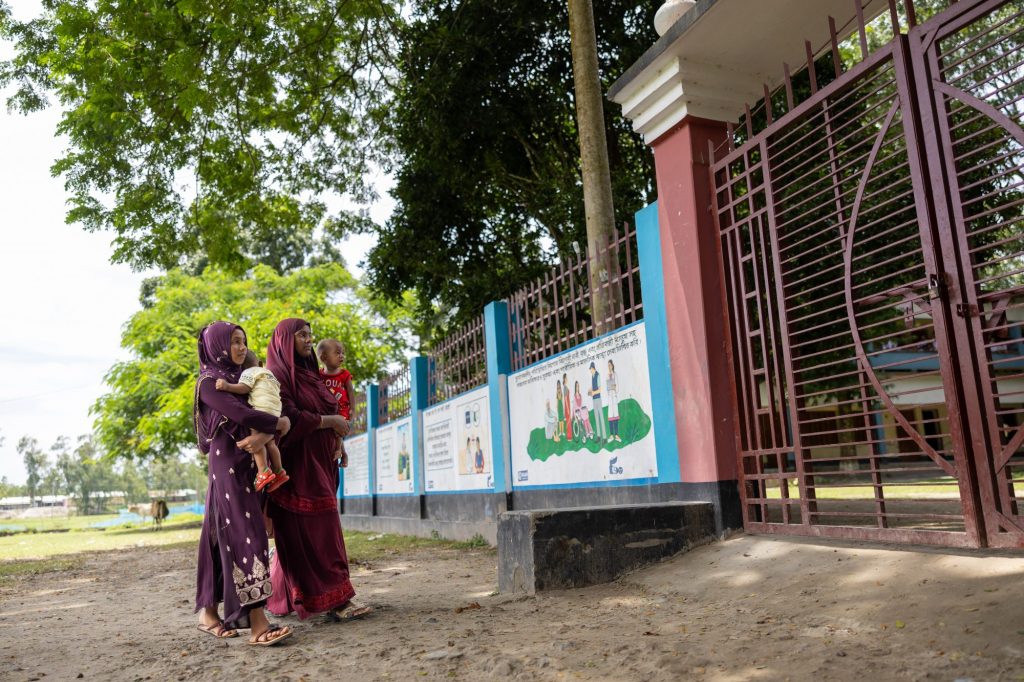
Defend Her Rights to Prevent Child Marriage By Passing Down Generations
When Nazima hoped that she could prevent the youngest in the family, 15-year-old Tania, from becoming a child bride, her husband fell seriously ill, and they suddenly lost financial support. Not only do they need to seek a loan for treatment, but the threat of child marriage is once again imminent. Tania’s worry-free school life seems to be counting down.
In addition to economic pressure, the deep-rooted culture of men’s superiority over women also makes it difficult for girls to escape child marriage. In Bangladesh, young and unmarried girls are treated as a disgrace, which forces them to drop out of school and become child brides. “Tania is constantly harassed by strange men on her way to school, threatening her to get married as soon as possible. In order to reduce the family’s expenses and protect her safety, it seems there is no other way.” Nazima expressed her helplessness sadly.
Through her active involvement in Plan International’s anti-child marriage project and witnessing the experiences of her mother and two sisters, Tania completely understands the adversity of child marriage. She firmly rejected her parents’ arranged marriages, defended her own rights, and insisted on continuing her education. “Child marriage will not lead to a happy life. My ideal marriage is for two people to be happy in love, financially independent, and to start thinking about marriage when both are mature enough at the age of 25.” Tania shared. She dreams of becoming a soldier to prove that women can also contribute to society like men.
Gather Forces to Eliminate The Intergenerational Cycle Of Child Marriage
The tragedy of intergenerational child marriage urgently needs to end in Tanya’s generation. Plan International has always regarded the elimination of child marriage as its mission and has been actively carrying out different anti-child marriage projects in developing countries for many years. For example, we implemented a project in Kurigram that helped set up community groups to let girls, parents, and community leaders learn more about the detrimental impacts of child marriage and set up a scholarship scheme for underprivileged girls. If the family agrees not to marry off the daughters and allows them to continue their studies before reaching 18 years old, a scholarship will be given to those families each month as a support to improve their livelihood and, at the same time, prevent girls from becoming child brides.
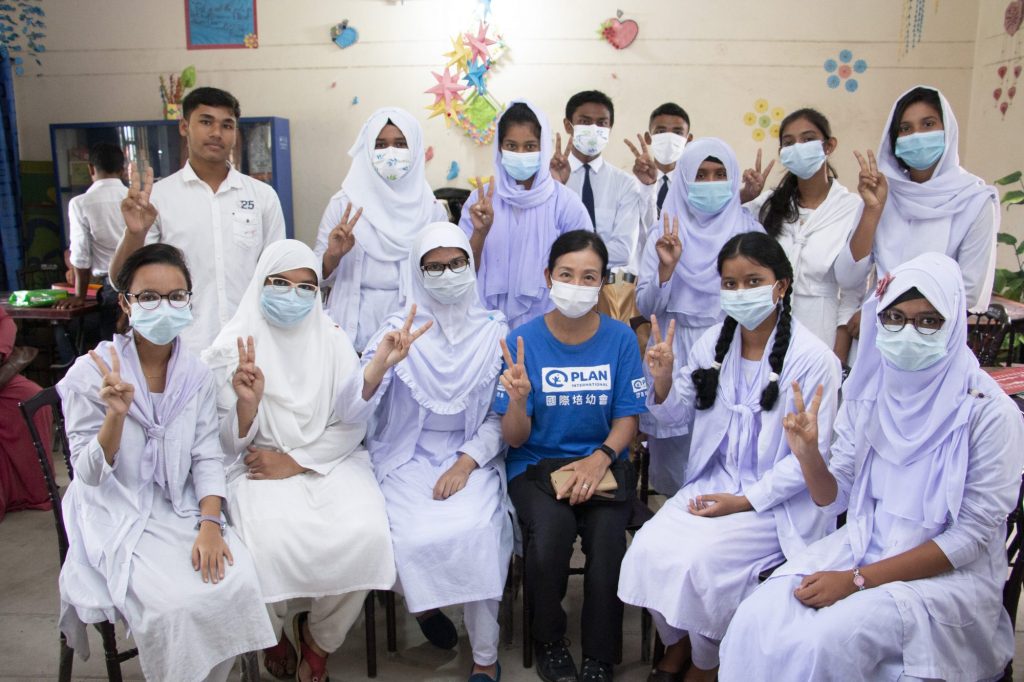
Plan International provides subsidies to poor families, allowing girls to purchase learning supplies such as stationery and school uniforms, thereby reducing family expenses and supporting girls to continue their studies.
Work Closely with the Police to Establish Child Marriages Reporting Channel
To combat child marriage, it is necessary to work with local authorities and organisations. I also met with the Police in Kurigram District during my visit. The superintendent Al Asad Md. Mahfuzul Islam described the law prohibiting child marriage in Kurigram as “soft law” and it lacks deterrence. Even if parents arrange child marriage for their daughters, they can only issue warnings rather than arrest them. We work closely with the local government and the Police to establish channels for reporting child marriages and actively lobby to promote local policy changes and increase the legal binding force in prohibiting child marriages.
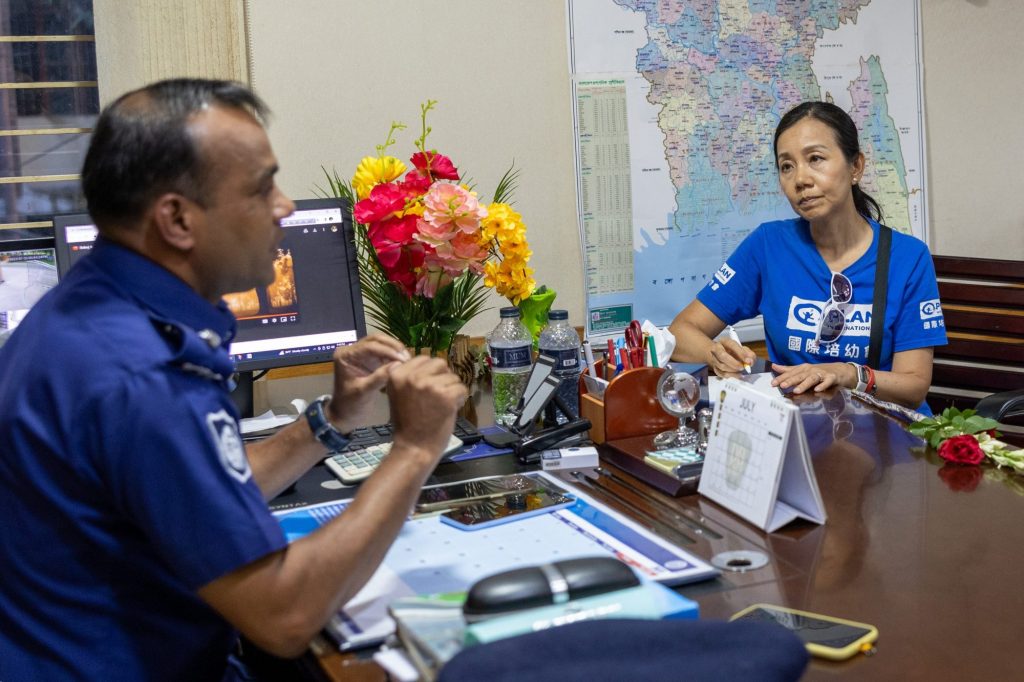 After talking with the superintendent in Kurigram, Bangladesh, I deeply understood the importance of eliminating child marriage through promoting gender education in the community, allowing community leaders, teenagers, and parents to understand the harms of child marriage. |
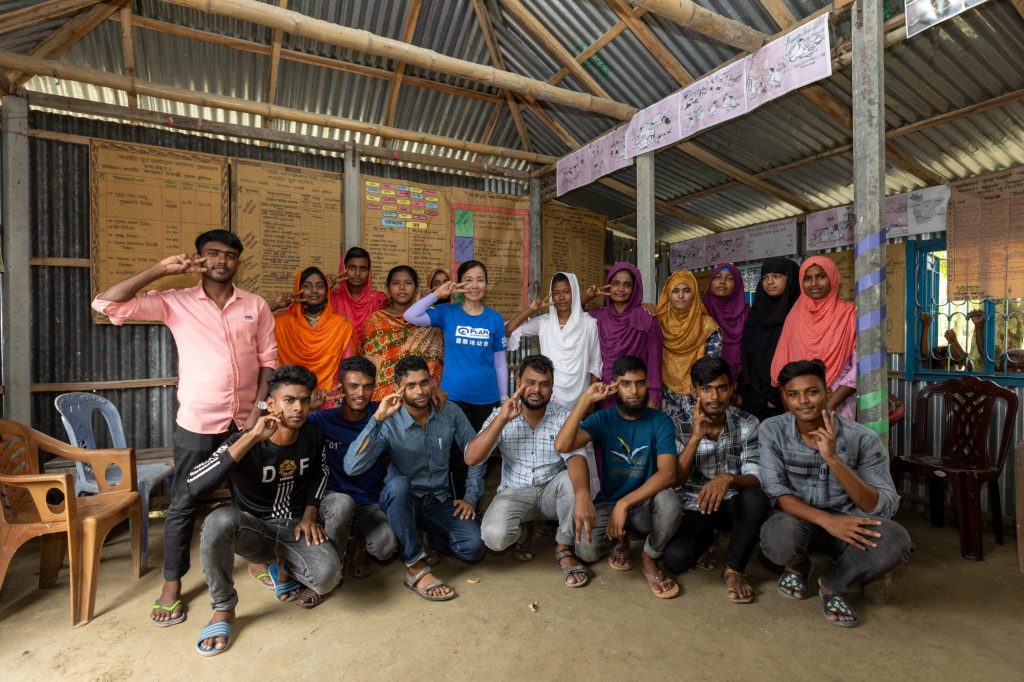 Plan International empowers young girls with leadership training and works with influential community leaders to take actions to prevent child marriage. |
Every girl deserves to be treated as the apple of her parents’ eye and grow up healthily and happily in their care. I would like to invite you to support Plan International’s work to save girls from child marriages, prevent child marriage from being passed down from generation to generation, and empower girls to pursue their dreams!
Girls Fund One-off Donation, project details are as follows:
- Donate HK$300: Provide 3 girls with a one-month scholarship to help them receive education and prevent girls from becoming child brides
- Donate HK$600: Provide 6 girls with a one-month scholarship to help them receive education and prevent girls from becoming child brides
- Donate HK$1,000: Provide 1 girl with a six-month scholarship and arrange 3 parenting sessions for 18 parents to learn about the detrimental impacts of child marriage
- Donate HK$2,500: Provide 4 girls with a six-month scholarship and arrange 5 parenting sessions for 30 parents to learn about the detrimental impacts of child marriage
Become a Girls Fund Monthly Donor
HK$4/daily: Provide girls in Bangladesh and other developing countries with long-term and stable assistance. With your monthly donation, you can protect them from the threats of child marriage, period poverty, female genital mutilation, and other forms of exploitation, so they are able to rewrite their destiny with knowledge and live happy and fulfilled lives.
HK$4/daily Save Girls From Child Marriage
Pictures were taken by Mr Anthony Luk, Volunteer Photographer of Plan International Hong Kong
